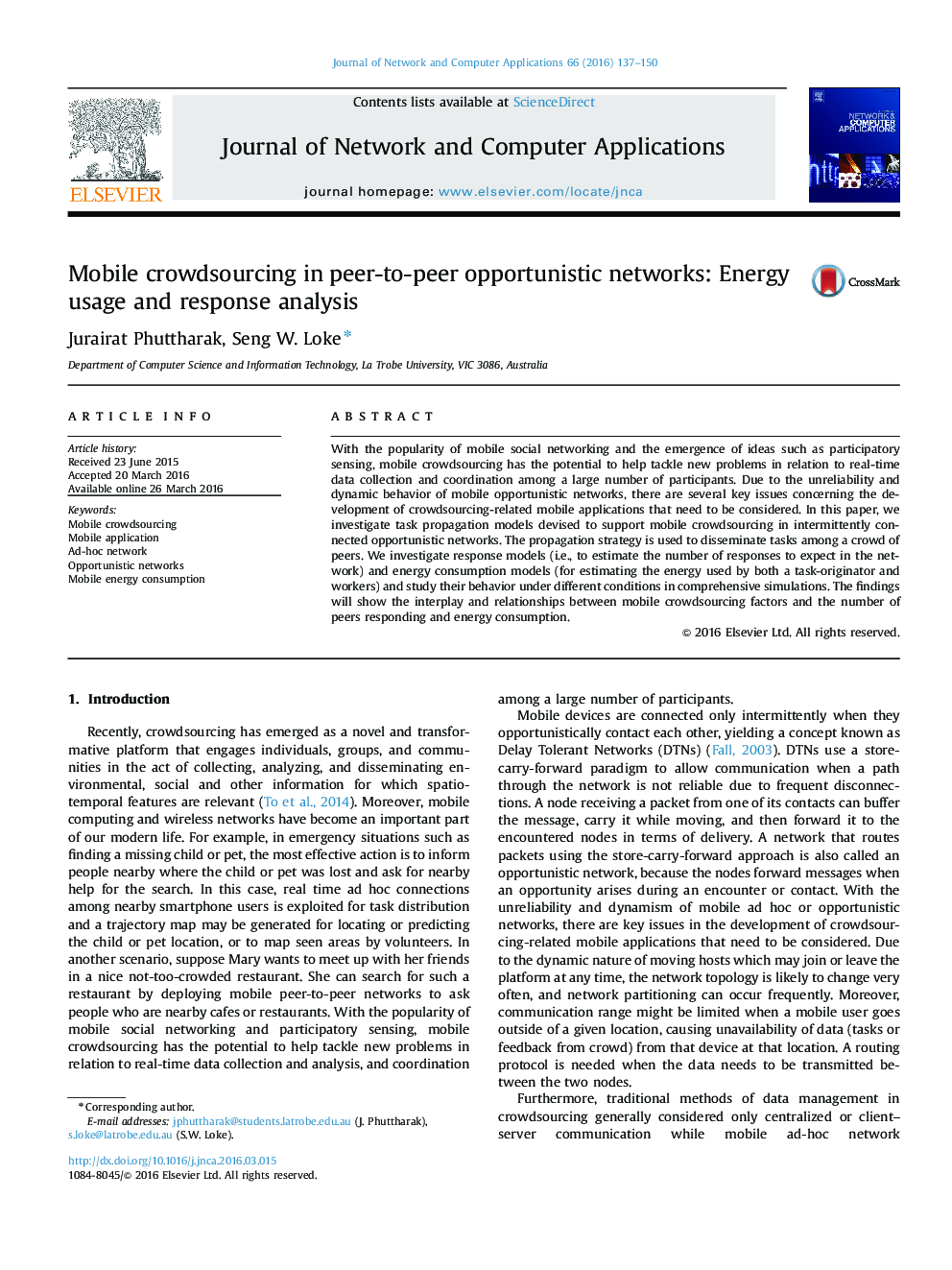| Article ID | Journal | Published Year | Pages | File Type |
|---|---|---|---|---|
| 459356 | Journal of Network and Computer Applications | 2016 | 14 Pages |
With the popularity of mobile social networking and the emergence of ideas such as participatory sensing, mobile crowdsourcing has the potential to help tackle new problems in relation to real-time data collection and coordination among a large number of participants. Due to the unreliability and dynamic behavior of mobile opportunistic networks, there are several key issues concerning the development of crowdsourcing-related mobile applications that need to be considered. In this paper, we investigate task propagation models devised to support mobile crowdsourcing in intermittently connected opportunistic networks. The propagation strategy is used to disseminate tasks among a crowd of peers. We investigate response models (i.e., to estimate the number of responses to expect in the network) and energy consumption models (for estimating the energy used by both a task-originator and workers) and study their behavior under different conditions in comprehensive simulations. The findings will show the interplay and relationships between mobile crowdsourcing factors and the number of peers responding and energy consumption.
